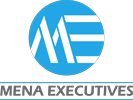The global economy is in a constant state of evolution, shaped by technological advances, geopolitical shifts, and socio-economic transformations. For recruitment firms and HR professionals, understanding how these macroeconomic trends influence talent placement is essential to making informed hiring decisions. In key economic hubs like Saudi Arabia, Qatar, and Dubai, placement strategies must adapt rapidly to align with emerging market needs and economic realities.
At Mena Executives Career, we work closely with organizations to anticipate economic changes and translate them into smart hiring strategies. By monitoring regional and global economic indicators, we help companies secure talent that not only fills roles but also drives future growth.
Economic Trends That Shape Placement Strategies
Economic trends influence the labor market in a number of ways: they create demand for new skills, redefine job functions, and reshape industry priorities. Here are some of the most significant trends currently impacting talent placement in the Gulf region and beyond.
1. Economic Diversification
In Saudi Arabia, Vision 2030 has fueled massive investment in non-oil sectors such as tourism, entertainment, renewable energy, and technology. As the Kingdom reduces its reliance on hydrocarbons, the demand for professionals with cross-sector experience has surged. Roles in project management, digital transformation, and sustainability are especially in demand.
Executive placement must therefore be future-oriented. Employers now seek leaders with the agility to navigate uncharted sectors, build innovative teams, and execute complex transformation agendas. At Mena Executives Career, our executive search approach identifies candidates who not only fit the current job description but are also capable of evolving with the business landscape.
2. Digital Transformation and Automation
Across Dubai and Qatar, governments and private enterprises are embracing smart technologies to drive efficiency, improve services, and foster innovation. This push for digitalization is reshaping placement priorities—creating high demand for IT specialists, cybersecurity experts, data analysts, and digital marketing professionals.
As AI and automation redefine job structures, recruiters must focus on placing talent that combines technical expertise with adaptability. Candidates who can lead teams through digital change or implement emerging technologies are now among the most valuable assets in any organization.
3. Global Economic Uncertainty
Events such as inflation spikes, interest rate changes, geopolitical conflicts, and global supply chain disruptions affect business confidence—and hiring decisions. Companies may freeze hiring in uncertain times or shift from full-time roles to contract-based models to maintain flexibility.
In such periods, having a strong placement partner becomes critical. At Mena Executives Career, we provide workforce solutions that align with changing economic cycles. Whether it’s scaling down quickly, hiring interim executives, or shifting to remote work models, we help businesses stay agile while maintaining productivity.
4. Localization and Nationalization Policies
In countries like Saudi Arabia and Qatar, nationalization programs are designed to increase local participation in the workforce. These initiatives impact hiring criteria, compensation structures, and talent pipelines. Employers must balance compliance with government goals while still securing skilled professionals to meet operational needs.
For example, companies in Dubai are increasingly seeking Emirati candidates for senior roles in finance, public services, and tech. This trend necessitates more strategic placement efforts, as recruiters must develop inclusive talent pools and understand local workforce development programs.
Industry-Specific Impacts
Economic trends don’t affect all industries equally. Placement firms must adapt strategies based on the sectors they serve. Here’s how different industries in the Gulf region are being shaped:
- Healthcare: Accelerated by the pandemic, the healthcare sector continues to expand, especially in Qatar and Dubai. Placements now include health tech experts, hospital administrators, and telemedicine specialists.
- Real Estate and Construction: As mega-projects roll out in Saudi Arabia and Dubai, demand is high for architects, engineers, and project managers with international experience.
- Finance: With growing fintech ecosystems, there’s increased hiring for compliance officers, investment analysts, and blockchain professionals in Qatar and across the UAE.
Placement Strategies for a Changing Economy
Understanding economic trends is only the first step. Businesses must take proactive steps to future-proof their talent acquisition processes. Here’s how:
1. Develop a Flexible Workforce Model
Blend full-time, part-time, freelance, and project-based roles to stay agile. This flexibility allows businesses to scale up or down quickly depending on economic shifts.
2. Prioritize Transferable Skills
As industries evolve, candidates with cross-functional and transferable skills become invaluable. Look beyond traditional job titles to find hidden potential.
3. Leverage Strategic Placement Partners
Working with a placement firm like Mena Executives Career gives companies access to real-time market insights, pre-qualified talent, and adaptable hiring models tailored to economic conditions in Saudi Arabia, Dubai, and Qatar.
4. Invest in Employer Branding
Economic shifts may affect candidate preferences. Companies that maintain strong employer brands during uncertain times attract top-tier talent more easily—even in highly competitive sectors.
Conclusion
Economic trends are a powerful force in shaping talent placement. As new sectors emerge and business needs shift, companies must evolve their hiring strategies to stay ahead. For firms operating in Saudi Arabia, Qatar, and Dubai, this means embracing digital transformation, nationalization goals, and workforce agility.
At Mena Executives Career, we turn economic insight into action. By aligning placement strategies with the realities of today’s marketplace, we help our clients attract the right talent at the right time—regardless of the economic climate.




